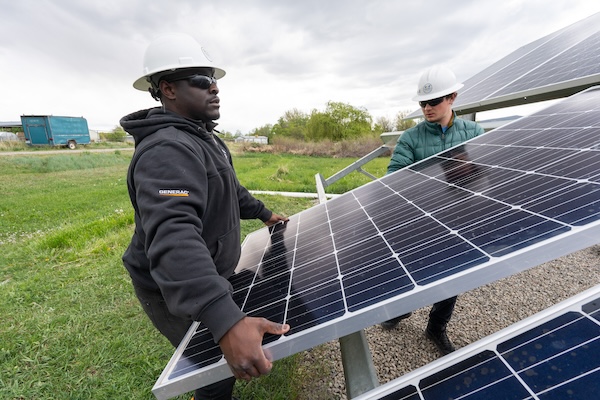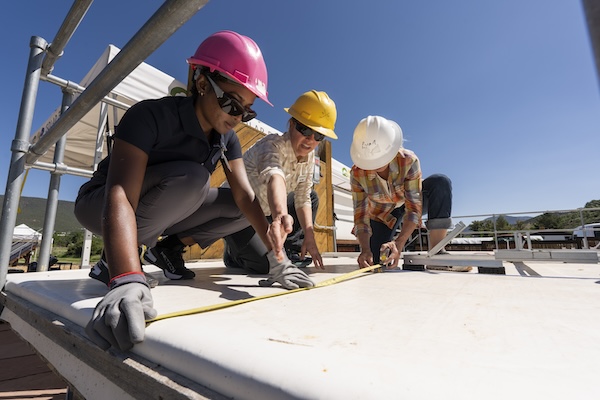The Vital Role of Formal Training Programs in Solar’s Evolution
In today's digital age, information is readily accessible at our fingertips. From DIY tutorials on YouTube to social media influencers, aspiring solar installers have numerous avenues to explore the intricacies of photovoltaic systems. However, while these informal sources of education offer valuable insights, they often lack the depth and credibility necessary for comprehensive training in the solar industry.

As the solar industry expands exponentially, it is poised to be recognized as an official trade on a national level. With this recognition comes the inevitable implementation of regulations and standards, including certifications for permitting and installation procedures. Relying solely on informal sources of education may leave individuals ill-prepared to meet these forthcoming requirements.
Formal training programs offered by reputable organizations play a pivotal role in shaping the future of the solar industry. These programs go beyond basic knowledge and theoretical concepts, providing participants with practical skills and hands-on experience essential for success in the field. Additionally, these programs are developed and delivered by industry experts who understand the unique challenges and requirements of the solar industry. Participants benefit from access to cutting-edge information, industry best practices, and real-world case studies that enhance their learning experience.
Ensuring that the solar educational training one chooses is certified as valid and reliable is crucial for aspiring solar professionals. One effective way to guarantee the quality of training is by selecting courses that are NABCEP (North American Board of Certified Energy Practitioners) certified. NABCEP certification is a recognized standard in the solar industry, ensuring that training programs meet rigorous criteria for quality and comprehensiveness.
 The goal of NABCEP is to produce well-trained professionals who can demonstrate their competence and retain the knowledge acquired during their training. This is vital for consumers, whether they are homeowners or business owners, as it helps safeguard their investment in solar energy systems. Properly trained professionals are more likely to install systems that produce the expected amount of energy, and require less operation and maintenance over time. Moreover, well-installed systems significantly reduce safety concerns, protecting both the installers and the end users.
The goal of NABCEP is to produce well-trained professionals who can demonstrate their competence and retain the knowledge acquired during their training. This is vital for consumers, whether they are homeowners or business owners, as it helps safeguard their investment in solar energy systems. Properly trained professionals are more likely to install systems that produce the expected amount of energy, and require less operation and maintenance over time. Moreover, well-installed systems significantly reduce safety concerns, protecting both the installers and the end users.
As facilitators of solar training, NABCEP’s role involves meticulously vetting trainers and training programs to ensure they cover the necessary knowledge, skills, and abilities (KSAs). These KSAs are identified through detailed Job Task Analysis (JTA) reports, which ensure training continually aligns with practical job requirements. NABCEP creates and provides these reports for a variety of certifications, such as the Photovoltaic Installation Professional (PVIP) certification. Training providers that meet these standards are invited to register with NABCEP, allowing them to become recognized as an Associate Registered Training Provider (ARTP) and identify their courses as a Registered Training Provider (RTP) program. Additionally, NABCEP organizes an annual Continuing Education Conference, which provides ongoing professional development opportunities.
Solar professionals who meet NABCEP’s high training standards and pass their Associate and Professional exams to obtain certification are continually recognized as the gold standard in the solar industry.
One such NABCEP Registered Training Provider is Solar Energy International (SEI). As a non-profit organization, SEI has been committed to offering high-quality education to the renewable energy industry for over 30 years, in both English and Spanish. SEI's mission is to train the global solar energy workforce, a goal they achieve through innovative, accessible, and engaging online and hands-on training programs. Their curriculum covers everything from grid-connected PV to energy storage, operations and maintenance, and sales, with individualized student support along the way.
SEI's online renewable energy education program is particularly popular. Covering a wide range of topics, students have the flexibility of learning at their own pace from anywhere with an internet connection, making it ideal for working professionals or individuals looking to gain a deeper understanding of solar. SEI also offers in-person training programs in Colorado, Oman, and Costa Rica, providing hands-on experience and practical demonstrations that allow students to apply their knowledge in real-world scenarios. This experiential learning approach reinforces theoretical concepts, builds confidence and proficiency in participants, and allows them to safely develop the skills and expertise needed to succeed in the field.

For students seeking a more cohesive program of study, SEI’s Solar Professionals Certificate Program offers comprehensive and rigorous training for individuals looking to enter or advance in the solar energy industry. Students engage with prearranged learning pathways, leading to various industry-recognized certifications valuable for job prospecting and upskilling. The program is ideal for professionals seeking to enhance their skills and knowledge in the rapidly growing field of solar energy.
Beyond obtaining qualified training and certifications in renewable energy, it is beneficial for installers to familiarize themselves with local building codes to ensure installations pass necessary inspections. It is also highly advisable to take OSHA Construction Safety courses, which are designed to prevent job site injuries. Many OSHA courses are also available online.
Formal training programs by reputable organizations offer numerous benefits beyond what informal sources of education can provide, and are increasingly essential for the solar industry's growth and success. By providing individuals with the knowledge, skills, and certifications needed to excel in the field, these programs contribute to the overall health and professionalism of the industry. As the solar industry evolves, formal training programs will be essential in ensuring its continued growth and success.
For further information visit:
NABCEP: www.nabcep.org
SEI: www.solarenergy.org
OSHA: www.osha.gov
Kevin King is the CEO and Founder of Solar Tools USA, a JTA committee member for NABCEP’s PVIP certification, an active advisory supporter of SEI, advisory committee member for IREC’s Solar Ready Vets Program, and President of the Idaho Clean Energy Association.
Solar Tools USA | solartoolsusa.com
Author: Kevin King
Volume: 2024 July/August









.png?r=1400)


